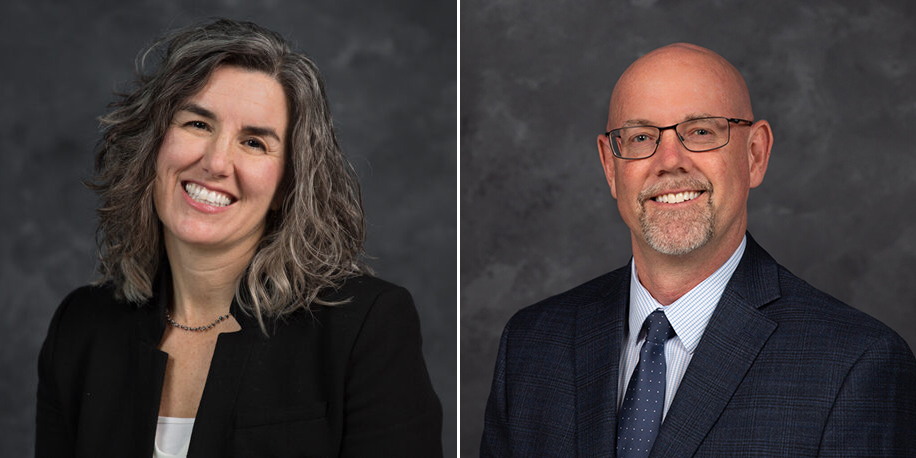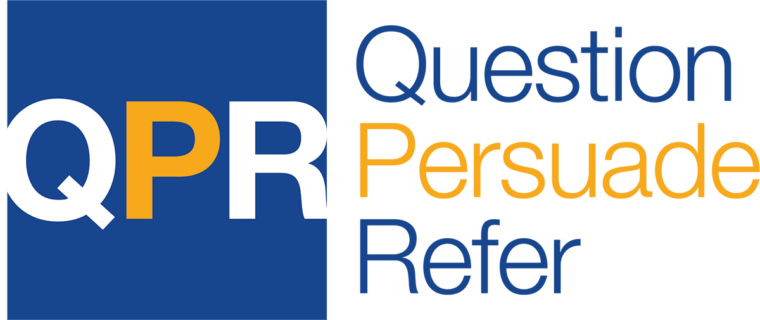QPR training, a nationally recognized suicide prevention program, is now available to all students, faculty and staff at Washington University in St. Louis.
Kirk Dougher, associate vice chancellor for student support and wellness, and Arie Baker, director of health promotion and wellness at Habif Health and Wellness Center, liken QPR to CPR — an emergency response that saves lives. QPR stands for Question, Persuade and Refer — the key steps in recognizing and responding to signs of suicidal thinking or behavior.
“We would like the entire campus to engage in this process so they have the tools for when — not if — they encounter someone in crisis,” Dougher said. “Student Affairs alone cannot solve the student mental health crisis. WashU, on the other hand, has a chance.”
Kognito, another evidence-based suicide prevention program, also remains available to faculty, staff, and students. Kognito uses animated simulations to help users lead effective discussions with struggling students. Access both programs at Mental Health Services.
Here, Dougher and Baker share more about QPR training and explain how it supports their broader goals to improve well-being on campus.
Not everyone feels comfortable with broaching the topic of suicide. Why is the Q (questioning) in QPR so important?
Baker: There is a myth that if you talk about suicide or ask somebody if they’re thinking about suicide, that you will give them the idea. We know that that’s not true. It actually brings a person in crisis a sense of relief because it means that somebody actually sees their pain and hurt. Asking a question can help save lives. The next step is helping someone get connected, whether that means walking them to Habif or putting them in touch with Timely Care. We know that rates plummet if someone in crisis is connected to care.
Mental health resources are stretched thin across the nation. Is help readily available on campus?
Baker: Absolutely. There is an urgent care counselor on staff at Habif who is available five days a week. We also have same-day or next-day appointments for students who need a mental health consultation. Timely Care is always an option. Simply put, if a student is in crisis, we will find a way.
Dougher: In addition, we are working to make Mental Health Services more accessible. We are setting up a system that allows students to check if there are same-day appointments available. We also have a resource available called ThrivingCampus. This is a database of therapists in the community who have been vetted and are available to treat students. In addition, Mental Health Services hosts workshops and process groups that students commit to for a set number of weeks. We know for many issues, especially dominant issues like depression and anxiety, group therapy is the treatment of choice and more effective than one-on-one therapy. Our goal is to continually expand those group options.

What is the difference between QPR and Kognito training?
Dougher: They have slightly different content and are presented in different ways. Kognito is focused on mental health symptoms in general, while QPR is fairly targeted on suicide prevention. But both are really good at helping users identify mental health symptoms and suicidality. My guess is we will find some populations will prefer to engage with an avatar-based program like Kognito. QPR training is available in person or online. We are available and eager to conduct these trainings for student groups, departments, offices and other groups in person.
Are you asking faculty to take on the role of therapist?
Dougher: We know from talking to faculty and staff that they want to know how they can help. I had one administrator call me after meeting with somebody who was in the throes of a manic episode. She was blown away and realized that she needed some tools. We want to fill that need. We aren’t asking people to be therapists. But knowing how to empathize with someone and validate their experience goes a long way.
What are your broader goals for campus well-being?
Dougher: We are trying to quite literally shift the campus culture. It won’t be easy. That requires students, professors, even parents to all shift their thinking. Our students are a super-bright, high-achieving group who sometimes erroneously believe that doing more will lead to doing better. And so they sacrifice sleep, exercise and other things in the service of trying to be a better performer. And what we know from every speck of data is that, actually, the more that you are consistent with positive health behaviors, the better your academic achievement and everything else will be.
Baker: The Office of the Provost and the Division of Student Affairs are asking each school to identify a well-being ambassador to work together to define priorities and identify attainable goals. Mind you, a lot of this work is already being done. The Center for Teaching and Learning has done numerous workshops around working with students in distress. We also worked with the center to produce “Promoting Student Well-Being in Learning Environments: A Guide for Instructors.”
Dougher: There is a phrase in health promotion work, “Make the best choice the easiest choice.” Maybe with professors, that means setting a Canvas deadline for an assignment for 9 p.m. instead of midnight so students get more sleep. That tiny change costs professors nothing; nor is it at odds with our academic goals — the opposite, in fact. Our goal is to work with partners across Washington University to find ways to support our students so they can grow and flourish.



